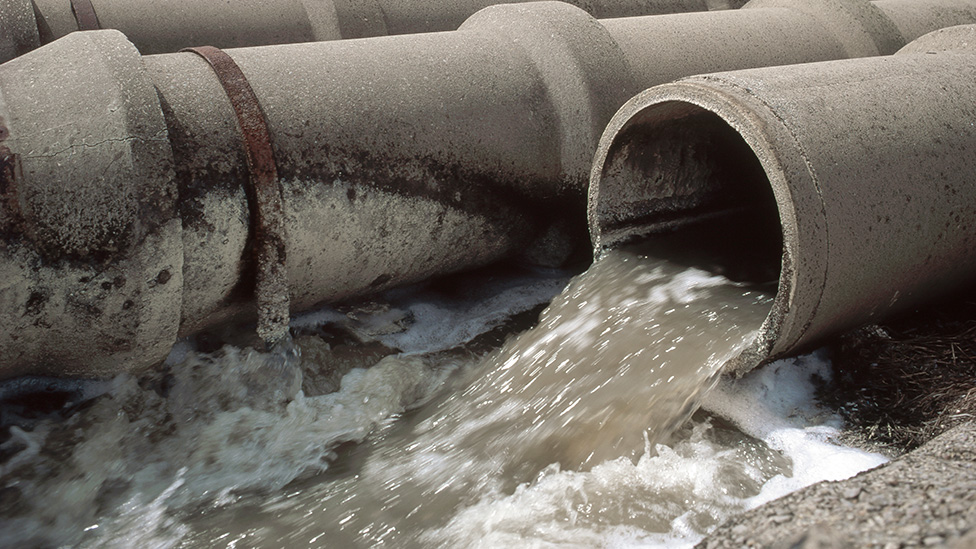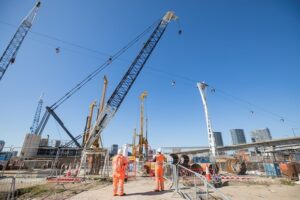Sewage has been discharged into London’s waterways for more than 12,000 hours in the last year, according to a new analysis by City Hall.
The finding came as mayor Sadiq Khan reaffirmed his manifesto promise to make all the capital’s waterways swimmable by 2034, saying it would follow on from the “progress we have made in cleaning our air”.
City Hall officers said sewage was released by Thames Water into the capital’s rivers for 12,105 hours and 38 minutes in the year to the end of March 2024.
By comparison, the figure was 3,361 hours and 17 minutes in the year to March 2023.
Thames Water insisted that “taking action to improve the health of rivers is a key focus” for the company.
Mr Khan said: “London’s rivers are the arteries of our city and should be a source of pride to us all but levels of sewage that water companies are pouring into our rivers is a scandal.
“I will not stand by and allow this to continue. As well as demanding clear action from Thames Water, I will launch an ambitious plan to make London’s rivers and waterways so clean that they could be safe for swimming within ten years.”
The Labour mayor told the Local Democracy Reporting Service that in order to achieve this goal, support was needed from the next Government – and he hoped Londoners would “do the right thing” in the election on July 4 by voting for Sir Keir Starmer’s party.
“The sort of things we can do in the meantime is work with campaigners, ecologists, boroughs, Thames Water and Ofwat [the Water Services Regulation Authority]”, he said.
“We really need the Government to step in. Why? Because if there’s a change in Government, and the next Labour Government puts Thames Water in special measures, that will hopefully give them an incentive to take action and work with us.”
Responding, a Thames Water spokesman said: “We regard all discharges as unacceptable and taking action to improve the health of rivers is a key focus for us.
“2023/24 has been the wettest winter in a decade, causing unprecedented levels of groundwater to enter the sewer system. The sewer system was historically designed to work in this way, relieving pressure caused by very wet weather to prevent sewage backing up into people’s homes.
“The Thames Tideway Tunnel, a £4.5 billion investment, is nearing completion. This project, combined with previous upgrades we’ve made to our London sewage works and the building of the Lee Tunnel, will capture 95% of the volume of untreated sewage currently entering the tidal Thames in a typical year.
“We have published plans to upgrade over 250 of our sewage treatment works and sewers to treat the high volumes of incoming sewage and reduce the need for overflows during wet weather. In London, we have started the £100 million upgrade of Mogden sewage treatment works, which will increase capacity and reduce the number of storm discharges from the site, and we’re also spending £145 million upgrading Beckton sewage works.”
He added: “We’ve put transparency at the heart of what we do, and we were the first water company to publish a real time data map on our website, which in its first year has been viewed over 350,000 times.”
The Financial Times reported this week that Ofwat is drawing up plans to create a special “recovery regime” for Thames Water and other financially stressed UK water companies in a bid to avoid nationalisation.
Companies with “recovery regime” status could potentially receive fewer or no regulatory penalties to encourage them to invest in infrastructure improvements instead, people close to Ofwat and the water companies are reported to have said. The water firms would also be given more “realistic” targets for reducing sewage and water leaks and outages, in exchange for more regulatory oversight for a period of up to five years.
Commenting on the newspaper’s report, the mayor said: “I’d be against any disinvestment from cleaning up our rivers.
“I understand Thames Water is a special case. But let’s be frank, Thames Water have leveraged up this company with a huge amount of debt, taken money out of the company, shareholders have received dividends.

“I don’t see why the taxpayer should be bailing them out in relation to bigger bills or do I think we should be sacrificing [the] quality of waterways because of the problems they’ve got themselves into. Ofwat is doing what they can with the limited powers they have.”
He added that Brexit, and the fact that the UK is no longer bound by EU directives on water quality, was also not helping to improve the state of London’s rivers.
As part of a broader effort to “rewild the capital”, Mr Khan has separately announced a £30m fund, which his team said would “bring the natural world back to Londoners and adapt our city to the increasing impacts of climate change – with a particular focus on supporting groups run by disadvantaged Londoners and those from ethnic minority backgrounds, who often have less access to green spaces and who are more vulnerable to climate changes”.
City Hall said the money will pay for trees, wildflower meadows, supporting waterways, parklets and other new green spaces.





